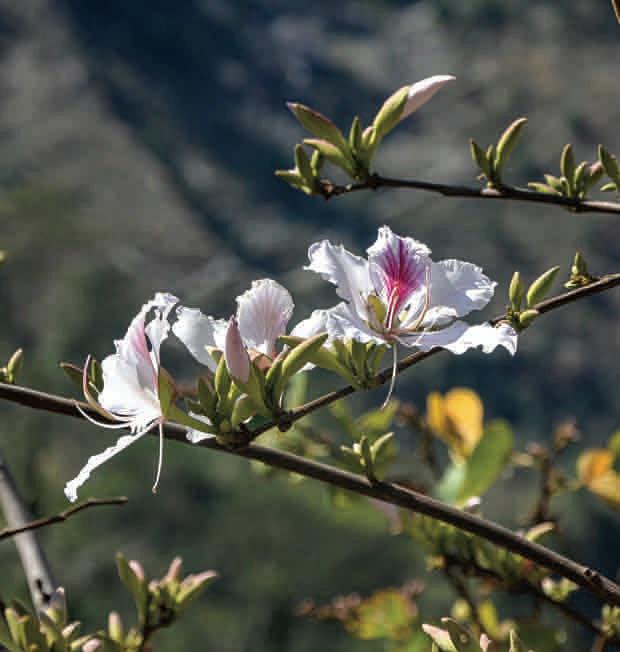Kamal Adhikari
Other projects
21 Sep 2015
Documentation of the Ethnobotanical Knowledge of the Inhabitants of a Typical Village, Namely Deurali, in Central Nepal
This project aims to scrutinise existing conservation practices of plant resources in Nepal. Besides, it also analyses the problems, and then indicates solutions which can aid the nature conservation, capacity building, and sustainability.

Mountain ebony, Bauhinia variegata L.
The socio-ecological factors such as political, kin, friend and other networks, dishonesty and patronage are the crucial factors that affect sustainability of the plant resources. This research aims to scrutinise existing conservation practices in Nepal. The concept of ethnobiology and political ecology will be applied, to look at the social construction of landscape and plant resources, whereas the scale of exploitation of plant resources at local, regional and national levels (village, middle and top) will be evaluated through resilience tools. By focusing on the regional level, which hitherto has been neglected in the Nepali context, it aims to analyse the problems, and then indicate solutions which can aid the nature conservation, capacity building, and sustainability.
In particular, it involves participant observation, field observation, in-depth interviews of key informants, informal interview, a set of qualitative case studies, and ethnobotanical work. In addition, the data will be collected evidence through conversations, taking notes, and recording and discourses and speeches with various conservation activists, forestry experts, traditional healers, and others.
Similarly, a set of questions will be asked to establish the language being used to influence local people to co-operate in the exploitation of plant resources. Firstly, at the community level, ethnobotanical tools will be used to collect information about the local use and classification of plant species. People’s perception will be assessed on plant resources, and the hidden agenda for supporting unsustainable use. Secondly, at the middle level, participant observation, interviews and a set of qualitative case studies will be conducted, specially focused on a few selected plant species. These include Himalayan Yew (Taxus wallichiana), Nepali Paper Plant (Daphne bholua), Rockfoil (Bergenia ciliata), Fragrant Bay Tree (Persea odoratissima), and different species of Orchids, which are currently endangered as a result of overexploitation. By raising awareness, it will recruit local people to the cause of the future conservation of natural resources.
For these case studies, I shall also need to go back and forth to village and top levels to get an overall view of the progress of plant species from its wild state to its processing in factories. Finally, at the top level, the secondary sources of the data will also be analysed through official reports and published information. The project will be 11 months period. The research activities will concentrate to understand the degree of overexploitation of plant resources at different levels by different actors and the reasons for it.